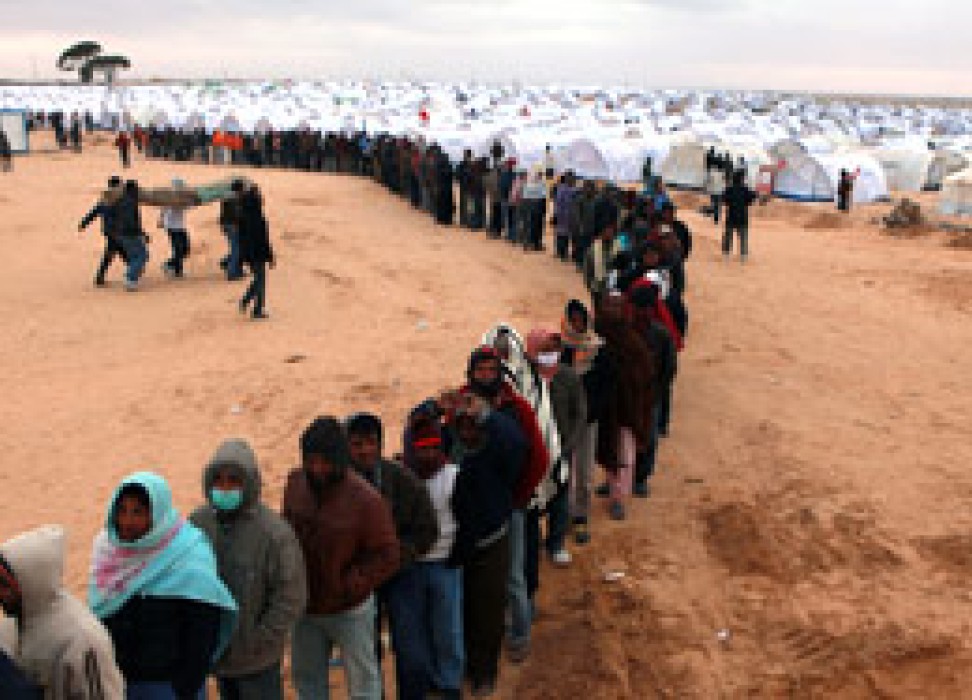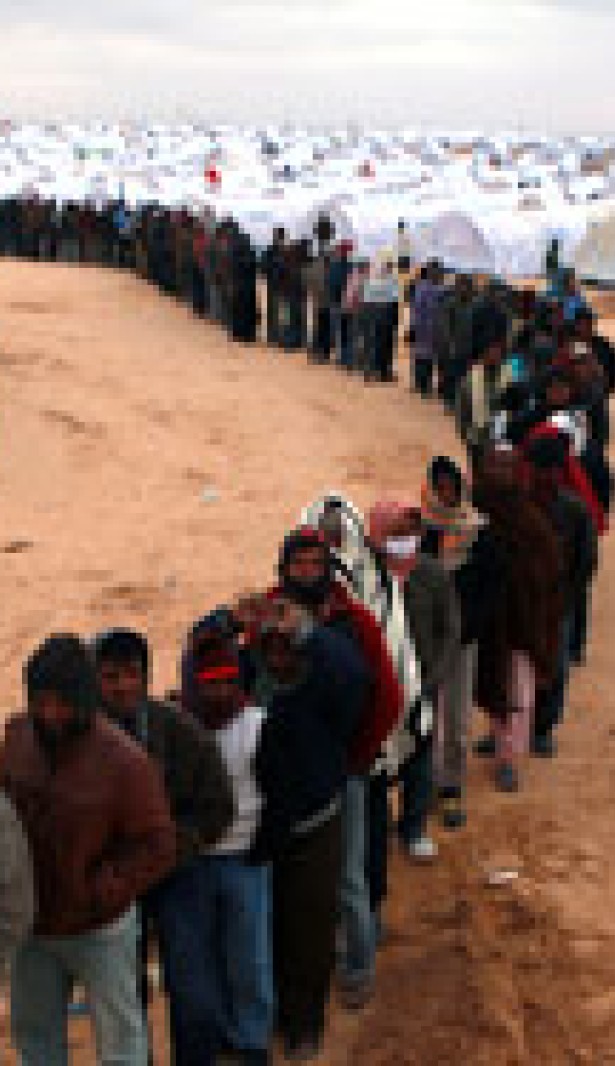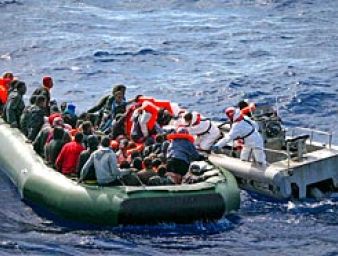Migration: human stories that mirror rising global inequalities
04 September 2013

There are currently more than 215 million migrants in the world: if all of these migrants came together to form a country, it would be the fifth most populous on the planet. Drawing attention to this astonishing statistic, UN Human Rights Chief Navi Pillay says this enormous group of people, nonetheless remain “largely invisible” defined only in terms of what they can deliver for others, and not as individuals entitled to the full range of human rights.
The High Commissioner was addressing a lead-in meeting of experts on migration organized by the UN Human Rights Office in Geneva prior to a global summit at the General Assembly in New York in October.
“Our starting point is that migration is not merely an anonymous “mega-trend” nor merely an economic and political phenomenon. It is a fundamentally human process, and one which increasingly holds up a mirror to rising global inequalities,” Pillay said.
The UN Human Rights Office is promoting a human rights-based approach to migration, arguing that the framework provides practical and concrete solutions to the complex challenges of international migration.
In her address Pillay offers examples of the practical impact of human rights-based programming on migration: the right to health means that States must enact legislation and put in place a full range of facilities to ensure migrant have access to health care; migrant women who fear domestic violence would be able to access justice without fear of deportation; and policy-makers would be obliged to consult migrants about decisions that directly affect them, for example, on the provision of education services.
In a report released to coincide with the gathering, the UN Human Rights Office says the lack of an inclusive, participatory and accountable global dialogue on migration and human rights is an important governance gap. Currently there is no single international organization that has a comprehensive mandate on all aspects of migration, and no space in which all stakeholders can discuss the promotion and protection of the rights of migrants, the report says.
The United Nations offers a common platform for systematic interaction on migration, including on issues that cut across many mandates. The Office is recommending that consideration be given to the creation of a UN-mandated multi-stakeholder standing body to examine, for example, such issues as the human rights of smuggled migrants; the exploitation and abuse of migrant workers; and access by irregular migrants to essential services such as health and education.
Also addressing the Geneva meeting, the Special Rapporteur on migrants, François Crépeau said, “The lack of understanding about the human rights of migrants, and particularly the fact that irregular migrants also have rights, makes them an increasingly vulnerable group… subject to xenophobia, anti-migrant sentiment, hate speech and hate crimes.”
Crépeau called for human rights to be a “core component” of all the discussions at the dialogue in New York and he supported greater involvement of the United Nations in the global debate on migration.
“It is my belief that as human mobility becomes more complex, the journeys taken by many migrants more perilous, and the situation in which they live and work more precarious, the need to base policy responses to migration on human rights standards becomes ever more important,” Pillay said.
Urging a demystification of migration, Pillay said a “more accurate picture of contemporary mobility” should be presented. “To do this, we need to focus less on the flows, stocks and waves of migration per se, and more on the individual human rights and situations of migrants themselves. At its heart, migration is fundamentally about human beings,” she said.
4 September 2013



